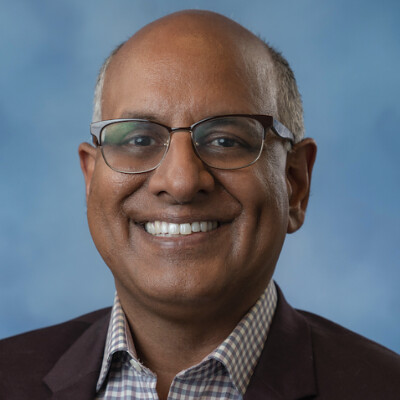
Rajesh
Mangrulkar,
MD, FNAP
Faculty Director of Michigan Center for Interprofessional Education, Professor of Internal Medicine and Learning Health Sciences
University of Michigan
Rajesh S. Mangrulkar, MD, FNAP is the Marguerite S. Roll Professor of Medical Education, Professor of Medicine and Learning Health Sciences at the University of Michigan. He is a primary care physician whose academic work centers on organizational leadership, innovation, transforming health science and health professional education at scale. After serving 10 years as Associate Dean of the medical school until 2021, he is now building a health professional education innovation community of practice across all U-M campuses. He serves as Director of the Michigan Center for Interprofessional Education and Executive Director of RISE, an education innovation initiative he founded.
Presenting at the Nexus Summit:
The assessment and evaluation of programs and centers for interprofessional practice and education is an essential component in examining impact. When building an IPE center or developing interprofessional programming for learners it is essential to identify the intended stakeholders and participants, and what the center or program is attended to achieve. If we are to determine if these intended outcomes are achieved, we must ensure the development and implementation of effective assessment and evaluation plans. During this seminar, participants will have the opportunity to explore how…
The Michigan Center for Interprofessional Education (CIPE) analyzed enterprise data, including staff and faculty engagement and patient experience data, to explore teamwork horizontally across these datasets. Based on this approach, we ranked clinical sites in order of high and low performers. In our analysis, one clinic, referred to here as Family Medicine Clinic 1, was ranked among the top primary care clinics at Michigan Medicine and 40th overall among all 251 ambulatory care clinics. While the quantitative data reveals that we seized the opportunity to observe the clinical flow at FMC1…
Background:
Artificial intelligence (AI) is rapidly transforming healthcare, reshaping the roles and responsibilities of all team members, including patients. Since OpenAI's release of Chat GPT in 2022, other tech companies like Google with Med-PaLM 2 and startups such as OpenEvidence have developed large language models (LLMs) for healthcare applications. These AI tools are increasingly utilized by healthcare teams and patients alike to tackle health-related questions in clinical settings and everyday life.
Problem:
Despite the growing recognition of AI's importance, existing AI…
